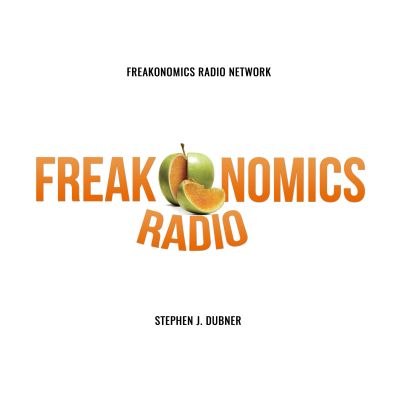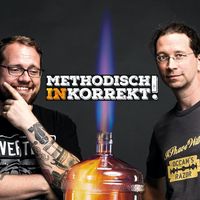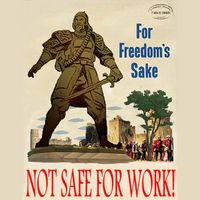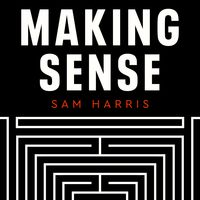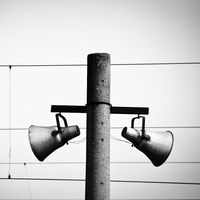Freakonomics co-author Stephen J. Dubner uncovers the hidden side of everything. Why is it safer to fly in an airplane than drive a car? How do we decide whom to marry? Why is the media so full of bad news? Also: things you never knew you wanted to know about wolves, bananas, pollution, search engines, and the quirks of human behavior. Join the Freakonomics Radio Plus membership program for weekly member-only episodes of Freakonomics Radio. You’ll also get every show in our network without ads. To sign up, visit our show page on Apple Podcasts or go to freakonomics.com/plus.
https://freakonomics.com
Gesamtlänge aller Episoden: 22 days 6 minutes
recommended podcasts
Food + Science = Victory! (Rebroadcast)
A kitchen wizard and a nutrition detective talk about the perfect hamburger, getting the most out of garlic, and why you should use vodka in just about everything.
episode 285: 285. There’s a War on Sugar. Is It Justified?
Some people argue that sugar should be regulated, like alcohol and tobacco, on the grounds that it's addictive and toxic. How much sense does that make? We hear from a regulatory advocate, an evidence-based skeptic, a former FDA commissioner — and the organizers of Milktoberfest.
episode 284: 284. Is Income Inequality Inevitable? (Earth 2.0 Series)
In pursuit of a more perfect economy, we discuss the future of work; the toxic remnants of colonization; and whether giving everyone a basic income would be genius -- or maybe the worst idea ever.
episode 283: 283. What Would Our Economy Look Like? (Earth 2.0 Series)
If we could reboot the planet and create new systems and institutions from scratch, would they be any better than what we've blundered our way into through trial and error? This is the first of a series of episodes that we'll release over several months. Today we start with — what else? — economics. You'll hear from Nobel laureate Angus Deaton, the poverty-fighting superhero Jeff Sachs; and many others.
episode 282: 282. Could Solving This One Problem Solve All the Others?
The biggest problem with humanity is humans themselves. Too often, we make choices — what we eat, how we spend our money and time — that undermine our well-being. An all-star team of academic researchers thinks it has the solution: perfecting the science of behavior change. Will it work?
episode 281: 281. Big Returns from Thinking Small
By day, two leaders of Britain's famous Nudge Unit use behavioral tricks to make better government policy. By night, they repurpose those tricks to improve their personal lives. They want to help you do the same.
episode 280: 280. “Tell Me Something I Don’t Know” on the topic of Collections.
Hear live journalism wrapped in a game show package and hosted by Stephen J. Dubner. In this episode, Tim Ferriss, Eugene Mirman and Anne Pasternak are panelists. The self-help guru, the comedian and the Brooklyn Museum director talk about brainwaves, sugar, stars and — thanks to fact-checker AJ Jacobs — barf bags.
How Safe Is Your Job? (Rebroadcast)
Economists preach the gospel of "creative destruction," whereby new industries -- and jobs -- replace the old ones. But has creative destruction become too destructive?
episode 279: 279. Why Is My Life So Hard?
Most of us feel we face more headwinds and obstacles than everyone else — which breeds resentment. We also undervalue the tailwinds that help us — which leaves us ungrateful and unhappy. How can we avoid this trap?
episode 278: 278. Chuck E. Cheese’s: Where a Kid Can Learn Price Theory
The pizza-and-gaming emporium prides itself on affordability, which means its arcade games are really cheap to play. Does that lead to kids hogging the best games — and parents starting those infamous YouTube brawls?
